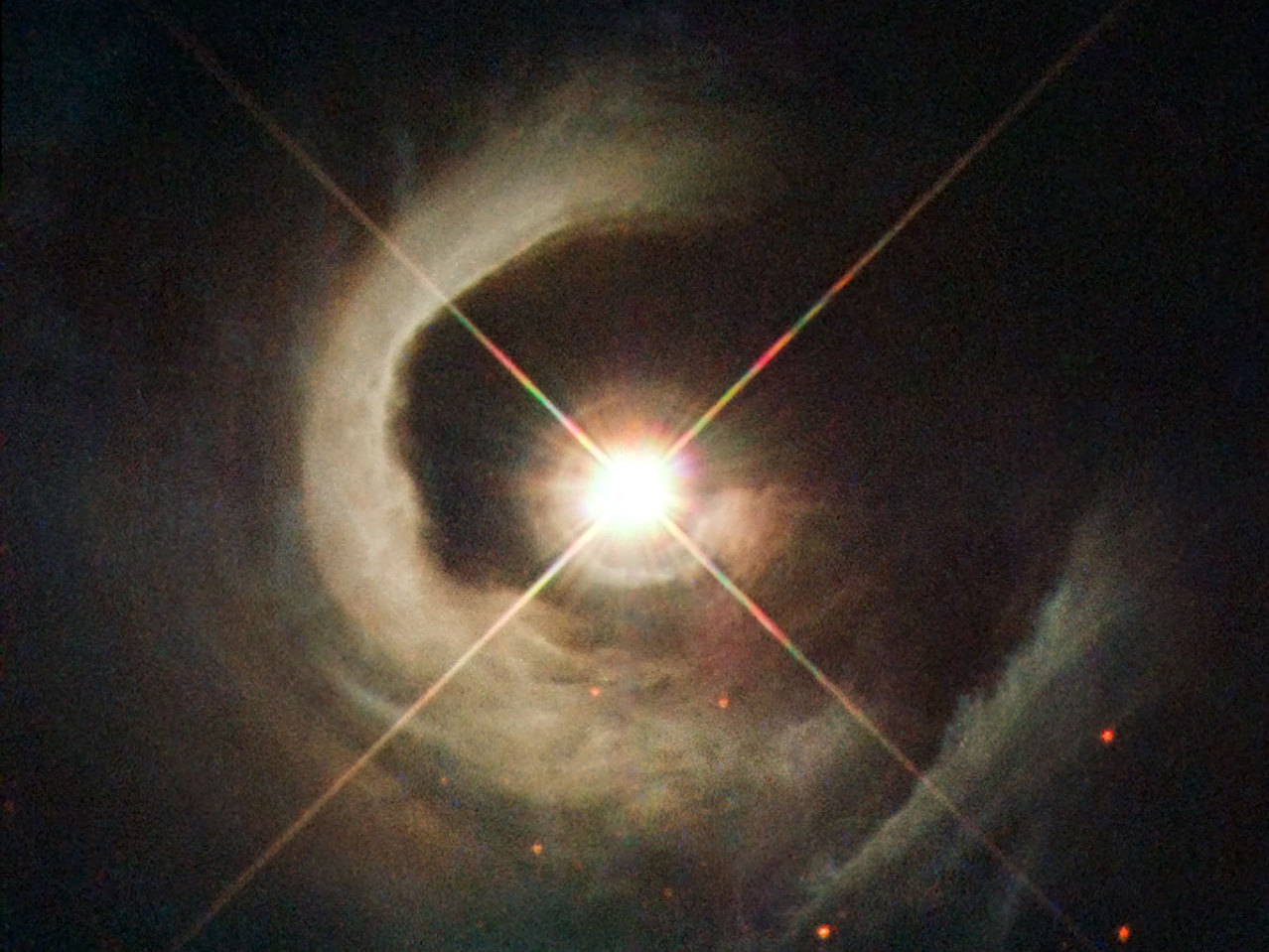What Is The Biggest Proof God Exist? Exploring The Evidence And Arguments
What is the biggest proof God exist? In the vast realm of human contemplation, the question of God's existence has been a perennial inquiry, inspiring profound philosophical debates and discussions.
Author:Bernard HorneDec 22, 2023483 Shares96.5K Views

What is the biggest proof God exist?In the vast realm of human contemplation, the question of God's existence has been a perennial inquiry, inspiring profound philosophical debates and discussions.
Amidst the diverse array of arguments and perspectives, the quest for the biggest proof of God's existence persists as an intellectual and spiritual journey.
As individuals grapple with the complexities of faith, reason, and experience, this exploration delves into compelling facets that are often considered paramount in affirming the presence of a divine Creator.
Existence Of God
Whether or not there is a God or gods is a hotly debated subject in religious studies, popular culture, and theology. You may classify the arguments for and against their existence as scientific, logical, empirical, metaphysical, or subjective.
The fields of value theory, ontology, and epistemology are all playing a role in the philosophical discussion. Plato and Aristotle, via their cosmological arguments, initiated the Western philosophical tradition that has long debated the nature of God and the gods.
A few more noteworthy names include Thomas Aquinas, John Calvin, René Descartes, St. Anselm, and Ibn Rushd. Both atheists and adherents of faiths that deny the existence of a creator god see these points as weak or overshadowed.
Friedrich Nietzsche and Bertrand Russell are among the philosophers who have argued against the existence of God.
There are two schools of thought on the subject of divine existence: theism and atheism, which represent different levels of understanding about the subject. When it comes to the conceptual coherence of God, agnosticism is the position to take, but apatheism is the position to take on regarding the practical relevance of the existence of God.
On his spectrum of theistic probability, Richard Dawkins outlined seven "milestones": strong theist, de facto theist, heavily leaning towards theism, entirely neutral, slightly leaning towards theism, de facto atheist, and strong atheist.
The presence of God may be understood from the created world with certainty by the natural light of human reason, according to the Catholic Church. According to classical theism, God is an impersonal, ultimate entity who does not possess any human characteristics. Like in Christianity, Islam, and Judaism, contemporary Western conceptions of God tend to center on a personal, superior, and monotheistic deity.
By outlining the planet and its contents, Moses ben Maimon—also known as Maimonides—sought to provide rational evidence for God's existence. Both deism and panentheism reject that God interferes with the workings of the cosmos, including speaking with people directly, and instead hold that God is either apart from or extends beyond it.
There are two proofs of God's existence in Baruch Spinoza's Ethics. The first is that God is personal and anthropomorphic; the second is that God is uncaused and without free choice.
Because one's own subjective religious experiences do not provide enough grounds to believe in gods, atheists deny both the reality of gods and the idea that there are any gods at all. Apatheism denies the existence of gods and seeks to explain natural events in terms of non-deity explanations, while agnostic theism includes both theism and agnosticism.
Can God Be Proven Mathematically?
Famous mathematicians who sought to establish the presence of a supernatural entity include Gottfried Wilhelm Leibniz, Kurt Gödel, Blaise Pascal, and René Descartes. On the other hand, these assumptions may be challenged.
For instance, because tricolor cats are almost invariably female, it's safe to assume that the vast majority of cats with this pattern of coat coloration are female. Nonetheless, it is harder to prove the presence of a divine being.
Using an ontological proof of God, thinkers like Leibniz, Descartes, and Gödel were able to deduce the existence of a supernatural entity simply by considering the possibility of it.
On the flip side, Pascal used game theory to examine the issue and come up with Pascal's wager, which takes into account two possibilities: whether God exists or not. Belief in God, he reasoned, was the wisest course of action since, depending on one's views, it might lead to either heaven or damnation.
While more compelling, ontological techniques that address the essence of being may fail to convince atheists. No one can conceive of something higher than God, according to Anselm of Canterbury.
Reiterating their earlier claims that perfection could not be adequately studied, Descartes and Leibniz returned to this concept. So, it follows that God must exist because the possibility of a divine entity must be real, according to the reasoning of Anselm and Descartes.
From a mathematical perspective, it was Kurt Gödel's attempts to employ logic to establish God's existence that gave these thought experiments any real weight.
The foundational axiom of Gödel's theory of existence asserts that if φ has the characteristic P and ψ follows from φ always, then ψ also has the property P. Since the idea of positive attributes is the foundation of this axiom, every presence of a positive quality necessitates the presence of a negative one.
Next, Gödel presents the idea of a divine being, explaining that an entity is considered divine if it has all the positive attributes φ. This rules out the possibility of God having any bad qualities.
Divinity is a good trait that unites all positive traits, according to the third axiom. A godly creature x may exist if the first theorem and the third postulate were combined. Next, Gödel presents the "essence" φ of an item x, a quality that defines all other attributes. The positivity of an idea or condition of affairs is independent of context, according to the fourth axiom.
God must exist as he has all the positive attributes, according to the fifth axiom, which stipulates that existence is a positive feature. Some have argued that Gödel's logical deductions are lacking in specificity when it comes to defining positive properties.
Ultimately, the existence of a divine being or beings is an open question, and the correct approach to answering it is uncertain; Gödel's theory of existence does not resolve this issue.
You Cannot Prove God’s Existence
The idea that God's existence cannot be proven has been widely held since Kant's Critique of Pure Reason. The idea that it is impossible to provide a philosophical case for God's existence that would persuade all rational individuals without room for doubt has grown into a dogma in American intellectual culture. If an argument fails to persuade an atheist to believe, then it cannot be considered evidence.
But this reveals nothing about God. Rather than answering the question of God's existence, it reveals more about the character of evidence. Despite the fact that arguments positing God's existence fail to provide mathematical certainty, this in no way undermines the case for God's existence.
There are few intriguing philosophical conclusions that can be confirmed beyond a reasonable doubt. Rather, it lumps the issue of God's existence in with others like how we know other people have minds and whether or not there is an exterior, mind-independent universe.
There is still excellent cause to believe in God, even if arguments for God's existence aren't always fruitless. Some of the justifications for believing in God could be convincing to others, and even if they aren't convinced, their reasoning might be valid.
Although they cannot be confirmed, it is fair to think that other brains exist, that our memories are dependable, and that the mountains do in fact exist.
We should examine the data and think about possible explanations, then choose the one that matches the evidence the best, if we want to know that God exists. When it comes to philosophical debates, such as the one over God's existence, there is no middle ground.
What Is The Biggest Proof God Exist?
Though millions over the globe put their trust in God, the Bibledoes not teach unthinking obedience. The opposite is true; it pushes people to find out for themselves what is genuine and true. "To whom then will you liken Me, or to whom shall I be equal?" is a statement that exposes God's actual character in the Bible.
Creation, a masterpiece of intricate galaxies and cosmic wonders, has long been a source of awe and wonder. King David, reflecting on the vastness of the heavens, posed a profound question to God, acknowledging the divine craftsmanship behind the celestial bodies. This sentiment echoes in our era with the revelations of the Hubble telescope, unveiling hitherto unknown galaxies and deepening our appreciation for the grandeur of the universe.
The prevalent scientific theory, as put forth by eminent astrophysicist Stephen Hawking, supports biblical wisdom by asserting that the universe had a distinct beginning—the Big Bang, which occurred roughly 15 billion years ago.
The convergence of scientific understanding and biblical narrative is evident, and theologians like Dr. Jeffrey Fall highlight this synchronicity, emphasizing the harmony between science and the Bible regarding the origin of the cosmos.
However, the quest for knowledge extends beyond the mere acknowledgment of a beginning. Sir John Maddox, a respected scientist, delves into the complexities of the universe's genesis, acknowledging the challenges faced by scientific theories.
While science can describe the "how" to a certain extent, it grapples with existential questions—why the universe exists and the purpose of human beings. Here, the Bible contributes a vital dimension, asserting that faithunveils a deeper truth: "By faith, we understand that the worlds were framed by the word of God."
Life, a miraculous phenomenon, further testifies to a purposeful Creator. Despite exhaustive attempts, science has failed to create lifefrom non-life. The law of biogenesis underscores the principle that life begets life, a concept echoed in the biblical narrative where God breathes life into man. The limitations of scientific endeavors prompt a crucial realization—life's origin lies in the hands of a Life-Giver.
The enigmatic laws governing the universe, immutable since its inception, beg the question of their origin. Science, in tandem with the Bible, posits a clear answer: "In the beginning, God created the heavens and the earth." The intricate fine-tuning of these laws, as Patrick Glynn notes, suggests a purposeful orchestration rather than random chance, pointing to an intelligent Lawgiver.
Design, intricately woven into the fabric of the universe, underscores the presence of a Designer. The human body, a marvel of complexity, leaves an indelible imprint of intelligent design. While some may choose to dismiss the notion, the evidence of purpose and order persists, challenging the narrative of a purposeless universe.
Fulfilled prophecy emerges as a compelling proof, with historical records and biblical scholars aligning on the accuracy of ancient predictions. Daniel's prophecy, spanning empires from Babylon to Rome, stands as a testament to the veracity of biblical foresight. Similarly, prophecies about the Messiah's birth, life, and death find fulfillment in the life of Jesus Christ, offering a roadmap through time.
Answered prayer, a deeply personal and subjective experience, adds another layer to the tapestry of evidence. While skeptics may remain unconvinced, the belief in the transformative power of prayer resonates with a majority. As Luke 11:1-4 guides believers on the path of prayer, the testimonials of answered prayers become a tangible manifestation of faith.
In the end, the Bible's advice on how to live is evidence of its divine wisdom. Amidst the tumultuous historyof human endeavors, the Bible's guidance emerges as a beacon of hope and purpose. Jesus' assertion that every word from God's mouth sustains life rather than just bread resonates as a timeless truth.
FAQs - What Is The Biggest Proof God Exist?
Is There Scientific Evidence Supporting God's Existence?
The convergence of scientific discoveries, such as the fine-tuning of the universe and the complexity of life, provides compelling arguments for the existence of a Creator.
Can Fulfilled Prophecies Be Considered Proof Of God's Existence?
Examining historical records and fulfilled prophecies, especially those related to significant events and figures, offers a perspective on divine foresight and intervention.
How Does The Concept Of Design In Nature Support The Existence Of God?
The intricate design observed in the natural world, from the complexity of DNA to the finely tuned constants of the universe, suggests an intelligent Designer behind creation.
Are Personal Experiences, Such As Answered Prayers, Considered Proof Of God's Existence?
For many individuals, personal encounters, transformative experiences, and answered prayers serve as profound evidence of a higher power at work in their lives.
Does The Existence Of Morality Provide A Rational Basis For Believing In God?
Exploring the philosophical argument that moral values and a sense of right and wrong imply a transcendent moral lawgiver offers insight into the reasoning behind the belief in God.
Final Thoughts
What is the biggest proof God exist? The quest to unravel the mysteries of existence leads us to a crossroads where science meets spirituality. The narrative of creation, echoed in both scientific discoveries and biblical accounts, invites contemplation.
Whether through the lens of astronomy, biology, or fulfilled prophecy, the evidence suggests a narrative where science and faith converge, offering glimpses into a reality that transcends our understanding.
The challenge remains—to seek, to question, and to explore the profound interconnectedness between the universe, its Creator, and the purpose it holds for humanity.

Bernard Horne
Author
In this signature of the father, Jesus, and the holy spirit. Exploring how God’s Word challenges us to live 100% according to His will so that we can come to a life of victory!
Latest Articles
Popular Articles
